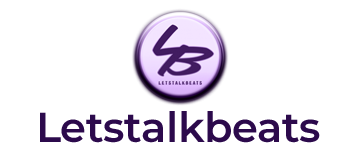Major Record Labels vs. Independent Record Labels for Underground Rappers
As a social media rapper or producer, deciding whether to sign with a major record label or an independent one is an important step in your career. Both offer different opportunities and challenges, and understanding the key differences between the two can help you make the right choice for your future. This article explores how these labels differ in terms of creative control, budget, and promotion, and what that means for social media artists like you.
One of the main differences between major record labels and independent labels is the level of creative control. Major record labels often have larger teams dedicated to managing an artist’s image, sound, and overall brand. For social media rappers and producers, this can mean that the label may ask you to adjust your style to fit mainstream trends, leaving less room for personal expression. While the exposure is greater with a major label, artists often lose some say in how their music is produced and marketed.
Independent record labels, on the other hand, typically offer more creative freedom. As an artist, you can usually maintain your unique sound and vision without the pressure to conform to commercial trends. Independent labels allow you to have a greater say in how your music is developed, and your artistic choices are less likely to be influenced by the need to generate big sales.
Budget and Financial Backing
Major record labels have the financial resources to fund large-scale projects, including recording, marketing, and touring. For social media rappers and producers, this means access to top-quality studios, experienced producers, and engineers. A major label will also have a bigger budget for music videos, promotional campaigns, and tour support, which can help you reach a wider audience. However, the financial investment often comes with a catch—artists are usually required to share a significant portion of their earnings with the label, and in many cases, the label owns the master recordings.
Independent record labels usually operate with smaller budgets, but this also means that the artist keeps a larger share of their earnings. While you might not have access to the same high-end resources as a major label artist, the trade-off is greater control over your music and a larger piece of the revenue. Independent labels may also be more flexible with funding, offering creative solutions like distribution deals or revenue-sharing agreements.
Promotion is another area where major and independent record labels differ significantly. Major record labels have established relationships with radio stations, streaming platforms, and media outlets, giving their artists a bigger promotional push. Social media rappers and producers signed to a major label are more likely to land on high-profile playlists, get radio airplay, and have their music featured in large publications. This kind of promotion can lead to quick success, but it often comes at the cost of artistic control.
Independent record labels may not have the same industry connections, but they are more likely to work closely with you to develop a targeted promotional strategy. For social media rappers and producers, this could mean using digital marketing tools, social media platforms, and grassroots campaigns to build an audience. While the reach may be smaller at first, independent labels can still achieve success by focusing on niche markets and engaging with dedicated fanbases.
Empowerment Through Knowledge
One of the greatest benefits of business coaching is the empowerment it provides through knowledge. Business coaching helps underground and mainstream artists understand essential aspects of career management, including financial planning, strategic decision-making, and business operations.
For example, knowing how to manage finances effectively can help artists avoid common financial pitfalls and ensure long-term stability. This knowledge empowers artists to make informed decisions that can lead to greater success and sustainability in their careers.
Strategic growth is another area where business coaching proves beneficial. A business coach assists artists in developing a clear path for growth, which includes actionable steps to enhance their brand, increase their income, and maintain a competitive edge.
In a highly competitive music industry, understanding the business side of things can provide a significant advantage. Artists who are well-versed in their business strategy often outperform their peers by staying ahead of trends, optimizing their marketing efforts, and making smart career decisions.
The Role of Digital Distribution
Digital distribution has become a crucial aspect of the music business, particularly for independent record labels and artists. With the rise of streaming platforms like Spotify, Apple Music, and Bandzoggle, social media rappers and producers have more opportunities than ever to get their music heard. Independent labels often work with digital distributors to ensure that their artists’ music reaches a wide audience across various platforms. This distribution model allows artists to maintain more control over their music and its earnings.
Major record labels also use digital distribution but typically have established agreements and partnerships with these platforms. They may have better access to prominent playlist placements and promotional features due to their industry connections. For artists considering a major label, the potential for increased visibility through these channels can be a significant advantage.
Navigating the Future of Music Promotion
The landscape of music promotion is continually evolving, especially with the growth of social media and digital marketing. Independent labels often leverage social media platforms, online communities, and influencer partnerships to promote their artists. This approach allows for more targeted and authentic interactions with fans. For social media rappers and producers, this can mean building a dedicated following and engaging with listeners in a way that feels personal and direct.
Major record labels, with their larger budgets, tend to invest in high-profile advertising campaigns and collaborations with established media outlets. While this can lead to widespread exposure, it may not always offer the same level of personal engagement that independent promotion strategies provide. As the music industry continues to adapt, staying informed about the latest trends in music promotion can help artists make the most of both major and independent opportunities.
Final Thoughts
Whether you choose a major record label or an independent one depends on your goals as an artist. If you’re looking for fast exposure and are willing to trade some creative control for bigger budgets and wider reach, a major record label might be right for you. However, if you value artistic freedom and want to build a career at your own pace while keeping more of your earnings, an independent label could be a better fit.
Understanding the key differences between major and independent record labels can help social media rappers and producers make an informed decision about which path to take. No matter which route you choose, being aware of how these labels operate will put you in a stronger position to grow your music career.
Justin David
Creative man • Philosopher • Artist • Producer





